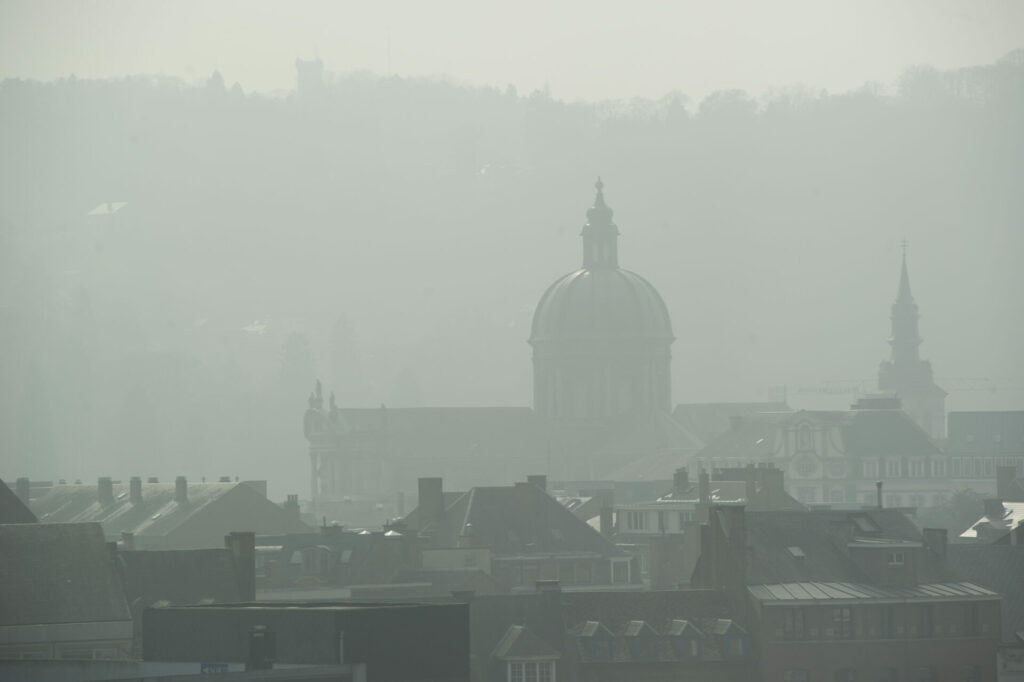Though exposure to fine dust has reduced significantly in Belgium, particle pollution is still expected to cost the average Flanders resident more than one year of "healthy" living throughout their lifetime.
According to figures recently published by Statistics Flanders, fine dust exposure in 2021 was projected to cost the average Flemish person 1.3 disability-adjusted life years (DALYs) — an official measure used by the World Health Organisation to show the number of years lost due to ill-health, disability or early death.
Though this represents a significant health cost, it is still a major improvement compared to previous years: the average person living in Flanders was estimated to lose 2.4 DALYs (or just under 29 months) from particle pollution in 2006 and 1.5 DALYs (or 18 months) in 2015.*
Danger remains
The figures subsequently remained relatively stable for the next three years, before falling further in 2019 and 2020, largely as a result of the pandemic and lockdowns put in place to curb rises in Covid-19 infections.
"Reduced emissions of air pollutants could explain the decreasing trend during the 2005-2021 period. Other factors, such as favourable meteorological conditions, may also play a role in this," Statistics Flanders noted.
However, from 2020 to 2021, the impact of particle pollution on Flemish people's health began to worsen, rising from 1.2 DALYs (or just under 14-and-a-half months) to 1.3 (or just over 15-and-a-half months): meaning, in effect, that the number of healthy years which the average Fleming can expect to live decreased by more than one month over this period.
Related News
- Belgium has world's highest 'forever chemical' pollution
- Pollution alert in Brussels: Fine dust concentrations exceed threshold
Long-term exposure to PM2.5 – fine particles that can be created by chemicals, construction, and various industries – has a particularly serious effect, accounting for 97.5% of the total health impact, mainly visible in premature mortality, as well as an increased incidence of asthma, diabetes and hypertension.
Particulate matter emissions are largely released by households using wood-burning stoves or fireplaces, but are also released in traffic (diesel engines but also as a result of tyre wear or braking) and by the production of iron and steel.
The levels of emissions have decreased by 51% since 2000, mainly due to the mandatory particulate filter in diesel cars and a drop in polluting vehicles driven by measures such as Low Emissions Zones (LEZs) in Belgium's biggest cities.
*This data is calculated assuming a constant average life expectancy of 82.4 years.

